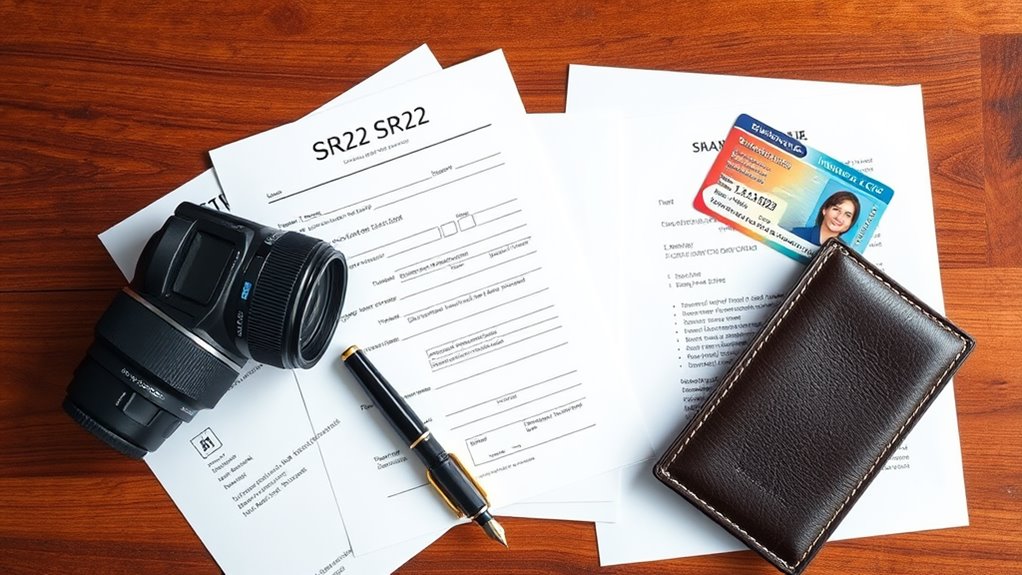2025-03-15
7 Essential Tips for Out-of-State Bond Filing

Did you know that nearly 30% of out-of-state bond filings encounter delays due to misunderstandings of specific state requirements? Steering through the complexities of bond filing can be challenging, especially when laws and procedures vary widely across states. To guarantee a smooth process, it's vital to grasp the essential steps involved. Knowing these key tips could save you time and prevent costly mistakes, so let's explore what you need to take into account.
Key Takeaways
- Research the specific bond requirements for the state where you're filing to ensure compliance with local laws and regulations.
- Choose a reputable surety company that operates in the state and is familiar with its regulations and bonding processes.
- Gather all necessary documentation, including identification and state-specific forms, to avoid delays in processing your bond.
- Familiarize yourself with the filing procedures for that state, including submission methods, notarization needs, and the obligee's requirements.
- Stay informed about any legal changes in the state that could affect your bonding obligations and filing process.
Understand State-Specific Bond Requirements

When maneuvering out-of-state bond requirements, it's crucial to recognize that each state has its own specific legal landscape.
Start by ensuring compliance with local laws, which may vary considerably. Identify the licenses and permits that necessitate bonding in your target state, particularly focusing on industry-specific rules, such as those for construction or automotive sectors. Additionally, be aware that some states may require SR-22 insurance for certain driving offenses, which could impact your bonding process.
Ensure you comply with local laws and identify necessary bonds for your industry-specific licenses and permits in your target state.
Don't overlook state tax considerations; some bonds may carry tax-exempt status, which could benefit your finances. Additionally, consider exploring state-specific portfolios that may offer tailored investment options based on your residency.
Always check if the state requires or accepts electronic filing for bond submissions. This knowledge will streamline your application process and enhance compliance, ultimately reducing the risk of delays or rejections in securing the necessary bonds for your business operations.
Choose a Reputable Surety Company
Selecting a reputable surety company is essential for securing the right bonds and guaranteeing your business operates smoothly. Focus on firms with strong financial strength, like Liberty Mutual Surety, which boasts high ratings from Moody's, A.M. Best, and Standard & Poor's.
Additionally, consider companies with solid industry reputations, such as The Hartford and Zurich, known for their extensive experience and high bond capacities. Verify their claim handling processes; efficient systems like The Hartford's online portal can streamline your experience.
Evaluate ratings across agencies, aiming for those with A or higher to guarantee financial stability. Finally, assess the variety of bond types and coverage they offer to meet your unique business needs effectively.
Prepare Necessary Documentation
Preparing the necessary documentation is essential for guaranteeing a smooth bond filing process. To avoid delays, you should gather and accurately prepare the following required documents:
- Government-issued photo ID
- Proof of personal information, including full name and Social Security number
- State-approved notary training certificate
- Records that precisely match your official documents
- Any additional state-specific forms or requirements
Make sure all personal details are consistent across these documents to prevent processing errors.
Accurate and complete documentation not only streamlines your filing but also guarantees compliance with state regulations, allowing you to effectively operate as a notary.
Accurate documentation ensures smooth filing and compliance, empowering you to operate effectively as a notary.
Taking these steps will help you navigate the bond filing process with confidence.
Familiarize Yourself With Filing Procedures

Once you have your documentation in order, the next step is to familiarize yourself with the specific filing procedures required for your bond.
Identify the obligee, typically a government agency or project owner, to understand their specific requirements. Different bond types, such as contract or court bonds, come with unique filing protocols.
Determine whether you'll submit your bond via mail, electronically, or in person, as methods may vary by obligee. Note that some bonds require notarization before submission.
If you're filing electronically, be aware of specialized systems like the NMLS for financial services.
Finally, ascertain you keep track of submission records and confirm receipt with the obligee to maintain compliance.
Stay Informed on Legal Changes
Staying informed about legal changes is essential for anyone involved in bond filing, as even minor updates can greatly impact your obligations.
Staying updated on legal changes is crucial, as even small adjustments can significantly affect your bond filing responsibilities.
Here are key areas to monitor:
- Legislative Updates: Changes in bond-related laws can affect the type and amount of surety required.
- Regulatory Amendments: New regulations may alter bonding requirements, including eligible obligations.
- Court Rulings: Significant decisions can influence bond enforcement and interpretation in your jurisdiction.
- Administrative Policies: Updates in policies, such as those regarding ICE bonds, are critical for compliance.
- Industry Reports: Keeping up with reports can help you identify trends and changes in bonding practices.
Track Bond Renewal Deadlines
Tracking bond renewal deadlines is essential to maintaining compliance and ensuring uninterrupted coverage.
To manage these deadlines effectively, establish a centralized system that provides easy access to renewal dates. Set calendar reminders to alert you well before the expiration of your current bond.
It's also wise to engage legal counsel who can keep you updated on state-specific requirements and deadlines. Utilize online tools to monitor multiple bond renewals across various jurisdictions, ensuring that all necessary documentation is submitted on time.
Finally, consider automated alerts from your surety providers to stay informed about upcoming renewal deadlines.
Address Issues Promptly and Effectively

Maintaining compliance with bond regulations requires prompt and effective management of address-related issues.
To guarantee your bond remains sufficient, follow these key strategies:
- Keep Current Addresses: Always maintain accurate addresses on file to avoid undeliverable mail.
- Update Promptly: Notify relevant authorities of any address changes immediately.
- Use Correct Forms: Utilize forms like Form I-333 for address updates in specific contexts.
- Verify Accuracy: Regularly check that all address information is correct to prevent complications.
- Establish Notification Protocols: Make certain all parties receive timely updates about address changes.
Conclusion
In summary, successfully maneuvering out-of-state bond filing hinges on your understanding of specific requirements and diligent preparation. By choosing a reputable surety company and staying on top of legal changes, you can streamline the process. Remember to track renewal deadlines and address any issues promptly—after all, wouldn't you want to avoid unnecessary complications? By following these essential tips, you're better equipped to meet your obligations and guarantee a smooth filing experience.